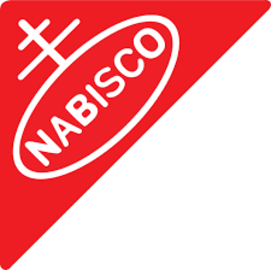Shredded Wheat
Nabisco | Brand
Shredded wheat is a breakfast cereal made from whole wheat. As of January 2010, it was available in three sizes — bite sized (¾×1 in), miniature (nearly half the size of the bite-sized pieces), and original. Both smaller sizes are available in a frosted variety, which has one side coated with sugar and usually gelatin. Some manufacturers have produced "filled" versions of the bite-size cereal containing a raisin at the centre, or apricot, blueberry, raspberry, or cranberry filling.
After Henry Perky died in 1908 and the patent on his Shredded Wheat biscuit expired in 1912, John Harvey Kellogg saw that as an opportunity for Kellogg's to sell its own version of the product. Kellogg obtained a patent on the biscuit in 1915, and Kellogg's Shredded Wheat was born. This provoked National Biscuit Company to sue Kellogg for copyright infringement, attempting to enjoin him from using Shredded Wheat as a trade name and from manufacturing the cereal in its pillow-shaped form. This series of litigations led to the United States Supreme Court case Kellogg Co. v. National Biscuit Co. in 1938. The Supreme Court ruled that shredded wheat was generic and not trademarkable; and that in any case, when the first patent for shredded wheat machinery expired in 1912, the right to apply the name "shredded wheat" to the product passed into the public domain along with that patent.
Subject ID: 13712
MoreShredded wheat is a breakfast cereal made from whole wheat. As of January 2010, it was available in three sizes — bite sized (¾×1 in), miniature (nearly half the size of the bite-sized pieces), and original. Both smaller sizes are available in a frosted variety, which has one side coated with sugar and usually gelatin. Some manufacturers have produced "filled" versions of the bite-size cereal containing a raisin at the centre, or apricot, blueberry, raspberry, or cranberry filling.
After Henry Perky died in 1908 and the patent on his Shredded Wheat biscuit expired in 1912, John Harvey Kellogg saw that as an opportunity for Kellogg's to sell its own version of the product. Kellogg obtained a patent on the biscuit in 1915, and Kellogg's Shredded Wheat was born. This provoked National Biscuit Company to sue Kellogg for copyright infringement, attempting to enjoin him from using Shredded Wheat as a trade name and from manufacturing the cereal in its pillow-shaped form. This series of litigations led to the United States Supreme Court case Kellogg Co. v. National Biscuit Co. in 1938. The Supreme Court ruled that shredded wheat was generic and not trademarkable; and that in any case, when the first patent for shredded wheat machinery expired in 1912, the right to apply the name "shredded wheat" to the product passed into the public domain along with that patent.
Subject ID: 13712
Subject ID: 13712
